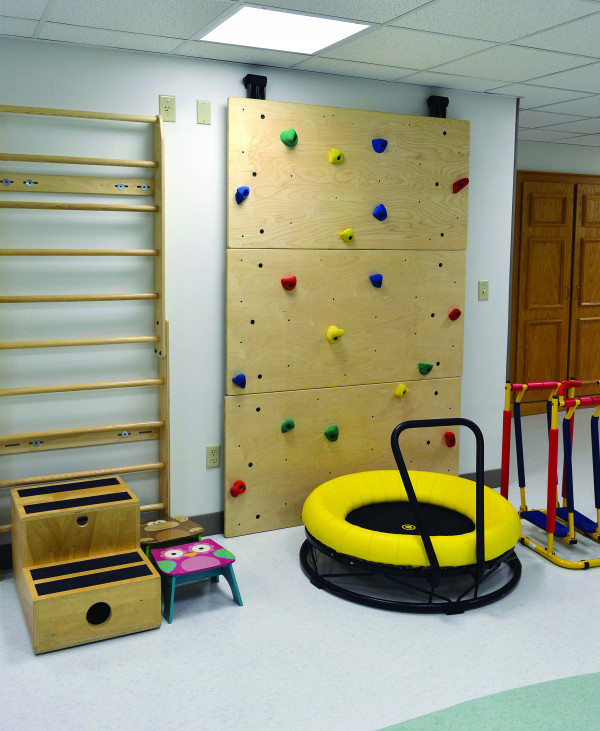Pediatric Rehabilitation
For children with developmental disabilities and delays, attending therapy sessions can cause anxiety. The Pediatric Rehabilitation Center at Cabell Huntington Hospital (CHH) helps ease anxiety using the region’s only multi-sensory room, dedicated to ensuring a calming and relaxing area.
Executive Director of Rehabilitation Services Shawn Bastin, MPT, MBA, said the pediatric program has emerged as a regional leader in therapy techniques for children who are on the autism spectrum.
“Unlike an adult with an ankle sprain that will heal in six weeks, for a lot of these kids therapy is a part of who they are,” he said. “Our therapists know that. They have advanced training in caring for children with rehabilitation needs, which often means understanding their psychological and emotional needs as well.”
training in caring for children with rehabilitation needs, which often means understanding their psychological and emotional needs as well.”
The pediatric rehabilitation services center features convenient parking, private therapy rooms for one-on-one treatment and a Snoezelen® multi-sensory room, providing children with a safe place to relax when they feel overwhelmed during therapy.
“We have a unique unit here at Cabell Huntington Hospital,” said Misty Chandler, MOTR/L, occupational therapist at CHH. “We are one of only two facilities in the area that provide all three disciplines – speech, occupational and physical therapy and we are the only one that has a Snoezelen® Multi-Sensory room.”
The term Snoezelen was coined from the contraction of the Dutch verbs “snuffelen” (to seek and explore) and “doezelen” (to relax). Snoezelen multi-sensory environments are relaxing spaces that help reduce agitation and anxiety, but also engage and delight the user, stimulate reactions and encourage communication. Using low light and introducing visuals, music, sounds, smells and textures, the room is a place of calm.
“We see a lot of children with developmental disabilities and several who fall into the autism spectrum who may become anxious when they begin therapy,” Chadler said. “The Snoezelen room offers a place where they can watch bubbles dance in a cylinder or play with fiber optic strings that change color. These help calm the children and allow them to build trust in their therapist.”
“We offer a full range of services dedicated specifically to children,” said Bastine. “Physical, occupational and speech therapy may be offered to treat temporary issues, such as recovering from serious illness or injury, as well as long-term care such as congenital disabilities, developmental delays and congenital conditions.”
The staff treats children with:
|
· Autism spectrum disorders · Cerebral palsy or apraxia · Chromosomal abnormalities · Developmental delays · Down syndrome · Facial anomalies, cleft lip/palate · Head and brain injuries · Hypertonia (increased muscle tone) |
· Hypotonia (decreased muscle tone) · Muscular dystrophy · Neurological disorders · Orthopedic conditions · Prematurity · Speech/language delays · Spina bifida · Torticollis (twisted neck) |
Each therapeutic plan of care is created individually, based on thorough evaluation and evidence-based practice. Rehabilitation specialists work closely with parents and communicate with caregivers, school professionals and other healthcare providers, as appropriate, to ensure that therapeutic activities carry over into daily life. Children are treated by the Rehabilitation Services staff on an inpatient and outpatient basis by appointment with a physician referral.
The Pediatric Rehabilitation Center is located in the Fairfield Building next to the hospital. For more information about Pediatric Rehabilitation Services at Cabell Huntington Hospital, please call 304.399.6511.